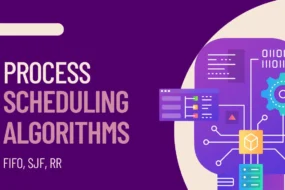
Linux, a widely used open-source operating system, incorporates a powerful scheduling algorithm that efficiently manages system resources. This article aims to demystify the Linux scheduling algorithm, shedding light on its key components and how it optimizes task scheduling.
1. The Importance of Scheduling in Linux
Effective scheduling is crucial in any operating system, as it determines how tasks and processes are allocated to system resources. Linux employs a sophisticated scheduling algorithm to ensure fairness, responsiveness, and efficient resource utilization. By intelligently prioritizing tasks, Linux can maximize system performance and provide a seamless user experience.
2. Process Scheduling in Linux
Linux employs a preemptive, priority-based scheduling algorithm called the Completely Fair Scheduler (CFS). Unlike traditional schedulers, CFS focuses on providing fair resource allocation among tasks, regardless of their priority. It accomplishes this by using a time-sliced approach and assigning each task a “virtual runtime” based on its priority level.
3. Key Components of the Linux Scheduling Algorithm
a. Runqueues: Linux maintains separate runqueues for each processor, which store the tasks eligible for execution. Each runqueue consists of active and expired queues, allowing CFS to maintain fairness.
b. Red-Black Trees: CFS uses red-black trees to efficiently organize the task structure. Tasks with the shortest virtual runtime are placed at the top of the tree, ensuring fairness by allowing them to run first.
c. Dynamic Priority Calculation: CFS adjusts the priority of tasks dynamically based on their execution times. Longer running tasks receive a lower priority, preventing starvation and ensuring fairness in resource distribution.
4. CFS Features and Benefits
a. Responsiveness: The CFS algorithm guarantees excellent responsiveness by allowing tasks to be preempted if a higher-priority task needs to run.
b. Fairness: By providing each task with a fair share of CPU time, CFS ensures that no single task monopolizes system resources, leading to a more equitable distribution of processing power.
c. Real-Time Support: CFS incorporates support for real-time tasks, ensuring that time-critical processes are given higher priority and meet their deadlines.
5. Linux Scheduling Variants
Apart from the CFS, Linux offers other scheduling algorithms suitable for specific scenarios. For example, the deadline scheduler prioritizes real-time tasks with strict timing constraints, while the completely fair hierarchical scheduler (CFHS) extends CFS to hierarchical systems5. .
Conclusion:
The Linux scheduling algorithm, powered by the Completely Fair Scheduler (CFS), efficiently manages the allocation of system resources. Through fair distribution, responsiveness, and real-time support, Linux ensures that tasks are executed in an optimized manner, enhancing overall system performance. Understanding the key components and features of the Linux scheduling algorithm is essential for developers and system administrators to harness the full potential of this powerful operating system.






